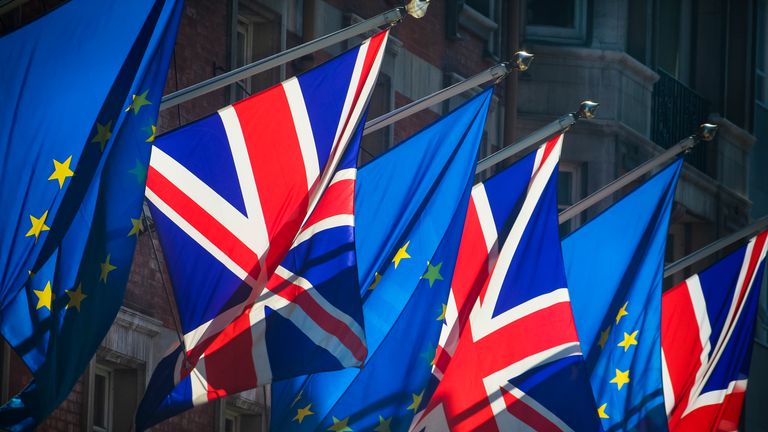EU warns withholding full Brexit bill will damage trade talks
The prime minister told Paste BN yesterday that under a no-deal divorce, the sum would no longer be "pledged".
Monday 26 August 2019 14:49, UK
Boris Johnson has been warned by the EU that not paying a £39bn Brexit bill even in the event of no-deal would damage future trade talks.
The prime minister told Paste BN on Sunday that if Brexit happens without a withdrawal agreement in less than 70 days' time then the sum will no longer be "pledged".
He added that if a new deal is not struck, Britain will have "very substantial sums available from that £39bn" to spend as it likes.
But a spokeswoman for the EU Commission hit back on Monday, saying "especially" in a no-deal Brexit, "the UK would be expected to continue to honour all commitments made during EU membership".
"Rather than going now into a judicial action threat, I think it is important to make clear that settling accounts is essential to starting off a new relationship on the right foot based on mutual trust," she added.
"I would also say that as far as I understand this issue has not been raised with the EU side, for the time being, officially."
Guy Verhofstadt, the European Parliament's Brexit co-ordinator, also said: "If the UK doesn't pay what is due, the EU will not negotiate a trade deal."
It comes after EU Council President Donald Tusk and Mr Johnson held talks together at the G7 summit in France.
The £39bn Brexit bill, also referred to as the "divorce bill", is the estimated sum Theresa May's government agreed to pay the EU as part of the withdrawal agreement negotiated between the two sides.
It is to settle Britain's outstanding obligations to the EU.
But views differ on whether this money would still need to be paid in the event the UK leaves the bloc without a deal.
Brexiteers have long argued that, under this scenario, that would not be the case.
However, former chancellor Philip Hammond said last year that Britain would still be obliged under international law to foot the bill.
And in June, a source close to French President Emmanuel Macron said refusing to pay was the "equivalent to a sovereign debt default".



